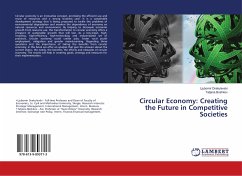A business model is the underlying framework for every company in order to be able to create, deliver and capture value. It is the foundation for the implementation of business processes and without it a company cannot operate and compete in the market. Hence, the business model concept has been positioned amongst the necessary inputs used by a company to gain economic outputs. However, a business model is not a static construct rather it is dynamic and evolves over time. In this context, competitive dynamics, i.e. the action response behavior of firms, play a central role as they influence companies to change and adapt their business models or some components of the same. Given the known concepts of the business model and competitive dynamics, the relation between both constructs is yet under-researched. The purpose of this thesis is to close the gap between business models and competitive dynamics and to reveal a relationship between both concepts by identifying the evolution of the top 15 companies business models in the European Food and Beverage industry during a five year period. Furthermore, this research investigates the predominant competitive dynamics incidents in this industry and finally, aims to answer how these competitive dynamics influence the evolution of the companies business models components.
Bitte wählen Sie Ihr Anliegen aus.
Rechnungen
Retourenschein anfordern
Bestellstatus
Storno








